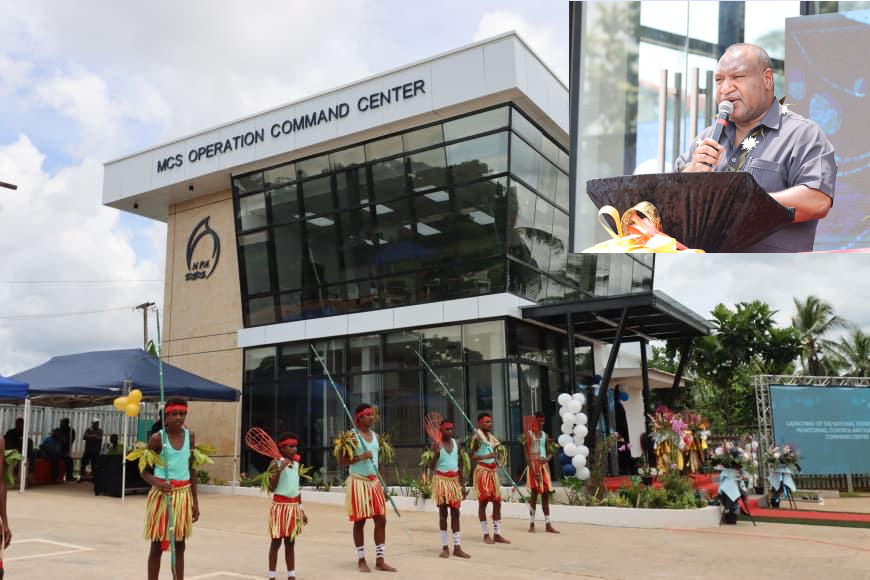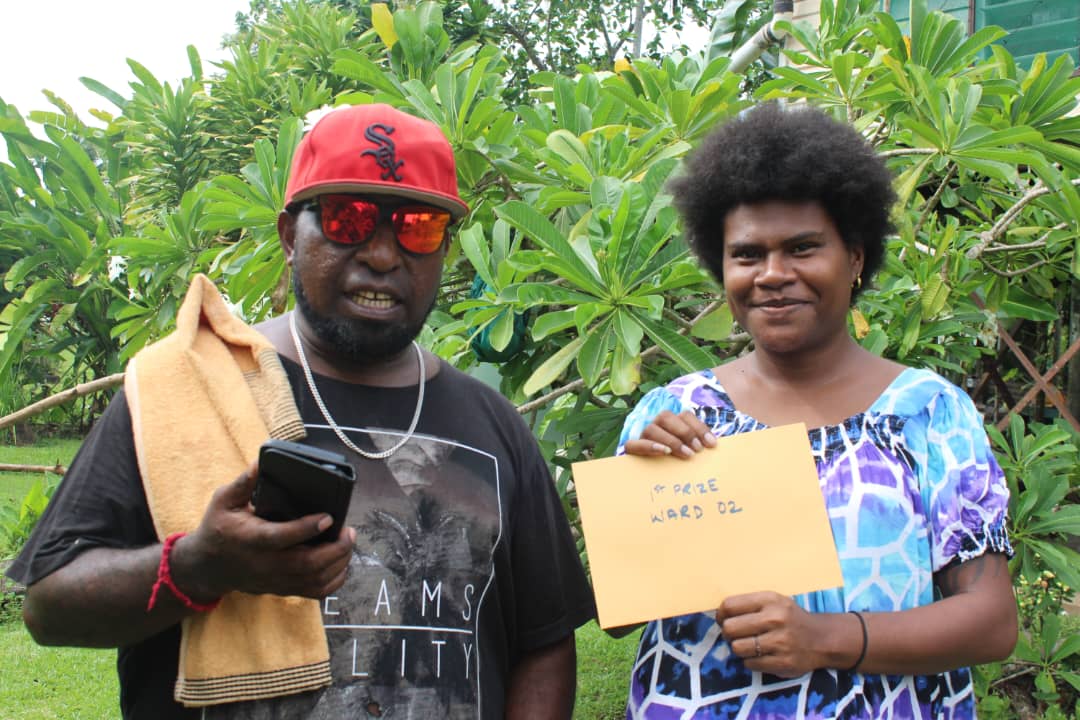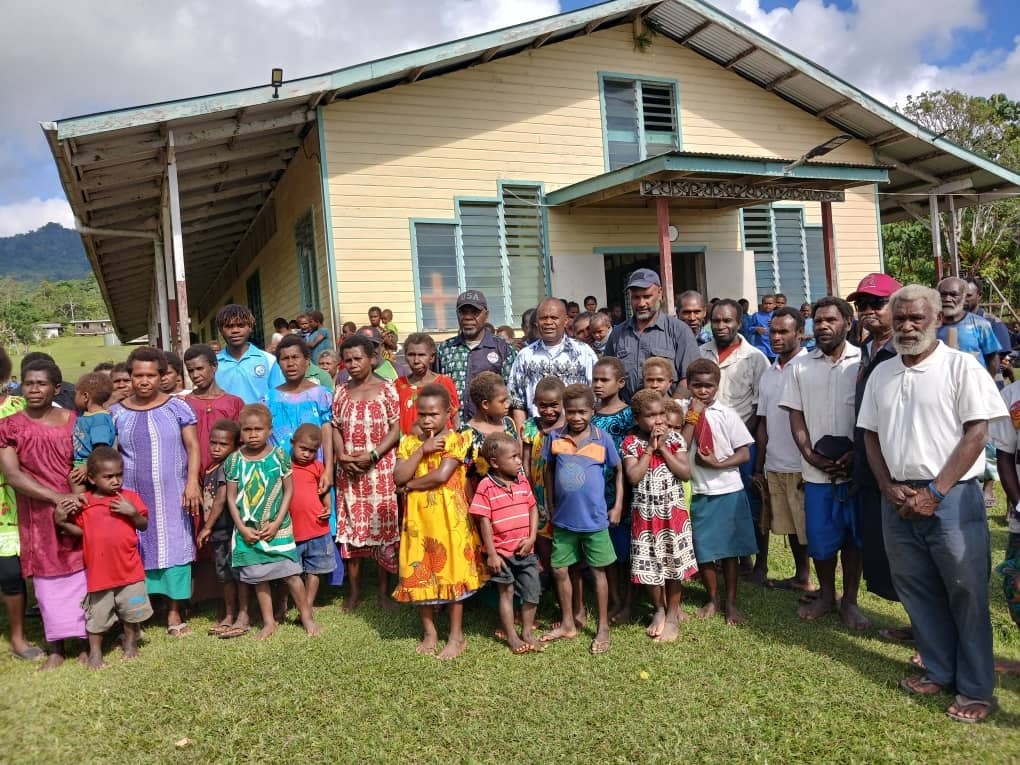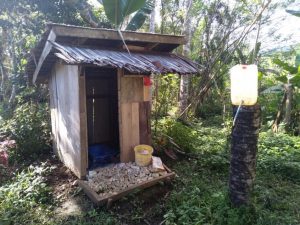 Caption: This toilets have been built through CLTS work to eliminate open defecation and keeping the communities safe, and healthy.[/caption]
“As these community change-makers will provide home visits to ensure cleanliness is maintained and addressed at the community level through the intervention of WASH practices”, she stressed.
Furthermore, Banip Satibe a community leader in Kapmewang in the Nawaeb district in Morobe province said the project has opened their eyes to live a healthy lifestyle, and to protect their environment and surroundings unlike the past without the intervention of the project.
Sharing similar sentiments, Tinibe Primary School in Nawaeb district’s Headmaster Mr Sebastine Dubaba said following awareness through the Klinpela project, the school has in-cooperated WASH into their lesson plans so students learn the importance of healthy living but also how best to protect their environment through their lessons.
He added that, the project has also intervened to set up the school’s toilet facilities for students to use including incinerators for menstrual waste management.
Caption: This toilets have been built through CLTS work to eliminate open defecation and keeping the communities safe, and healthy.[/caption]
“As these community change-makers will provide home visits to ensure cleanliness is maintained and addressed at the community level through the intervention of WASH practices”, she stressed.
Furthermore, Banip Satibe a community leader in Kapmewang in the Nawaeb district in Morobe province said the project has opened their eyes to live a healthy lifestyle, and to protect their environment and surroundings unlike the past without the intervention of the project.
Sharing similar sentiments, Tinibe Primary School in Nawaeb district’s Headmaster Mr Sebastine Dubaba said following awareness through the Klinpela project, the school has in-cooperated WASH into their lesson plans so students learn the importance of healthy living but also how best to protect their environment through their lessons.
He added that, the project has also intervened to set up the school’s toilet facilities for students to use including incinerators for menstrual waste management. NEWS
WASH PROJECT PROMOTING CLEAN ENVIRONMENT IN COMMUNITIES
![]() By PNG Haus Bung |
June 7, 2021
By PNG Haus Bung |
June 7, 2021
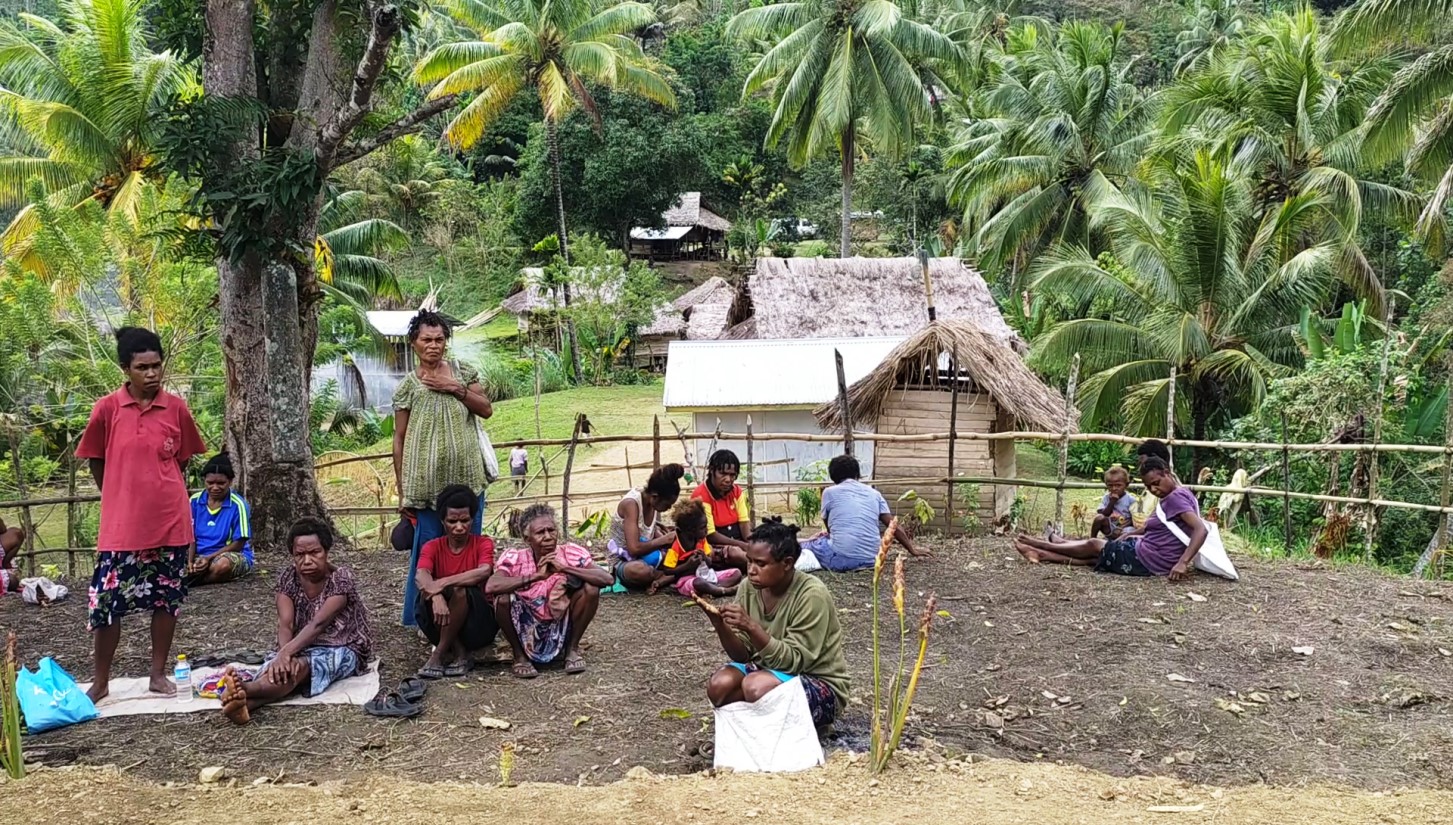
 Caption: This toilets have been built through CLTS work to eliminate open defecation and keeping the communities safe, and healthy.[/caption]
“As these community change-makers will provide home visits to ensure cleanliness is maintained and addressed at the community level through the intervention of WASH practices”, she stressed.
Furthermore, Banip Satibe a community leader in Kapmewang in the Nawaeb district in Morobe province said the project has opened their eyes to live a healthy lifestyle, and to protect their environment and surroundings unlike the past without the intervention of the project.
Sharing similar sentiments, Tinibe Primary School in Nawaeb district’s Headmaster Mr Sebastine Dubaba said following awareness through the Klinpela project, the school has in-cooperated WASH into their lesson plans so students learn the importance of healthy living but also how best to protect their environment through their lessons.
He added that, the project has also intervened to set up the school’s toilet facilities for students to use including incinerators for menstrual waste management.
Caption: This toilets have been built through CLTS work to eliminate open defecation and keeping the communities safe, and healthy.[/caption]
“As these community change-makers will provide home visits to ensure cleanliness is maintained and addressed at the community level through the intervention of WASH practices”, she stressed.
Furthermore, Banip Satibe a community leader in Kapmewang in the Nawaeb district in Morobe province said the project has opened their eyes to live a healthy lifestyle, and to protect their environment and surroundings unlike the past without the intervention of the project.
Sharing similar sentiments, Tinibe Primary School in Nawaeb district’s Headmaster Mr Sebastine Dubaba said following awareness through the Klinpela project, the school has in-cooperated WASH into their lesson plans so students learn the importance of healthy living but also how best to protect their environment through their lessons.
He added that, the project has also intervened to set up the school’s toilet facilities for students to use including incinerators for menstrual waste management. Related News
LATEST NEWS
